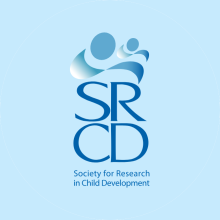February 2010 Spotlight on the SRCD Policy Fellow: Nancy Geyelin Margie, Ph.D.
2009-2010 Federal Executive Branch Policy Fellow
My work as a second-year Fellow in HHS’s Office of Planning, Research, and Evaluation (OPRE) in the Administration for Children and Families (ACF) continues to provide me with exceptional opportunities. Currently, my primary responsibilities are (1) co-managing the Child Care and Early Education Quality Features, Thresholds, and Dosage and Child Outcomes (Q-DOT) study design project, (2) co-managing the Head Start Graduate Student Research (HSGSR) grants, (3) working with a team of researchers on a project linking family engagement to family sensitive caregiving, and (4) assisting with shorter term projects such as grant reviews.
Q-DOT and the HSGSR Grants. In my first year as a Fellow, I worked with colleagues to design and write the RFPs and coordinate the reviews for the Q-DOT and HSGSR projects. Building on that experience, I now co-manage these projects. This responsibility has given me new insight into project design and administration as we work to decide on the information that should be included in literature reviews, prioritize which questions to focus secondary data analyses on, review progress reports, and advise grantees on how to navigate the ACF budget process successfully. I am grateful for the opportunity to experience the daily life of a federal project officer, and for the deeper understanding and appreciation of how this work contributes to better research and programs.
Family Engagement. I am also very fortunate to be working with a group of incredibly dedicated child care researchers who have developed the concept of family sensitive caregiving and with staff from the Office of Head Start who are committed to improving our understanding of family engagement. There is a clear need for better measurement of family sensitive caregiving and family engagement. Because of the many commonalities between these two concepts, we are working jointly to integrate them and identify measureable constructs. Our ultimate goal is to identify measurement that captures the essential elements of family sensitive caregiving and family engagement, and that is applicable to a wide variety of early care and education settings, such as center-based care, family child care, Head Start, and pre-k programs.
Grant review. In addition to these primary responsibilities, I have been involved in a number of shorter term projects, including a rewarding grant review. Last year I wrote program announcements, coordinated reviews, and oversaw the work of reviewers. This year I added to this experience by digging into the hard work of actually reviewing proposals and writing comments for a grant review run by the Children’s Bureau’s Quality Improvement Center on Early Childhood. This experience deepened my first-hand knowledge of the overall federal grant process. In addition, it gave me the opportunity to draw on knowledge I had gained during my first fellowship year from my OPRE and Children’s Bureau colleagues concerning rigorous evaluation methods for interventions and complex systems. I am grateful for the opportunity to have now worked directly on all of these phases of a federal grant, as this nearly two-year immersion gives me a much deeper understanding and appreciation of the process.
Finally, it has been fascinating and exciting to be in the federal government during years of such change. As a researcher, having the Administration officially announce the importance of evaluation research in the policy decision-making process was encouraging and exciting (see https://www.whitehouse.gov/sites/whitehouse.gov/files/omb/memoranda/2010/m10-01.pdf). Furthermore, I am honored to have worked with a small team of OPRE staff to apply evidence to program planning and priorities. Seeing research taken seriously by high-level decision makers is very gratifying, and I appreciate the opportunity to be even a tiny part of such an exciting time for our country.
